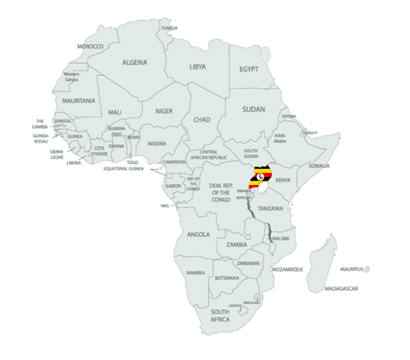
Introduction
Uganda, often referred to as the “Pearl of Africa,” is a landlocked country located in East Africa. Known for its stunning landscapes, diverse wildlife, and rich cultural heritage, Uganda offers a unique blend of natural beauty and economic potential. With a population of over 45 million people, Uganda is one of the fastest-growing economies in the region, making it an attractive destination for investment.Uganda's Economy and Investment Potential
Uganda’s economy has shown remarkable resilience and growth in recent years, driven by various sectors such as agriculture, manufacturing, services, and emerging industries like oil and gas. The government has implemented numerous reforms to create a conducive environment for business and investment, including infrastructure development, regulatory improvements, and investment incentives.Investment Climate
Uganda’s investment climate is characterized by political stability, strategic location, and a young, dynamic workforce. The government, through the Uganda Investment Authority (UIA), provides various incentives to attract foreign investment, including tax holidays, repatriation of profits, and protection of investor rights. Additionally, Uganda’s membership in regional economic blocs such as the East African Community (EAC) and the Common Market for Eastern and Southern Africa (COMESA) provides investors with access to broader markets.As Uganda continues to develop and diversify its economy, it presents a wealth of opportunities for investors seeking to make a meaningful impact while achieving sustainable returns.
Strategic Location
Uganda’s strategic location in the heart of East Africa makes it a gateway to the entire region, providing easy access to several key markets:- Regional Connectivity: Uganda shares borders with Kenya, Tanzania, Rwanda, South Sudan, and the Democratic Republic of Congo, offering direct access to a combined market of over 300 million people.
- Trade and Transport: Positioned at the crossroads of major trade routes, Uganda serves as a critical transit hub for goods and services in the region. The Northern Corridor, which links Uganda to the Kenyan port of Mombasa, is a vital trade artery for imports and exports.
- Aviation and Logistics: Entebbe International Airport, Uganda’s main international gateway, handles over 1.5 million passengers and 60,000 metric tons of cargo annually, facilitating both passenger travel and freight movement across the region.

Key Investment Opportunities
- Agriculture :
As the backbone of Uganda's economy, agriculture contributes about 24% of the GDP and employs around 70% of the population. Investment opportunities abound in crop production, agribusiness, agro-processing, and export-oriented farming.
- Oil & Gas :
The discovery of significant oil reserves, estimated at 6.5 billion barrels, has positioned Uganda as a potential player in the global energy market, attracting substantial foreign investment in exploration, production, and infrastructure.
- Infrastructure :
Ongoing infrastructure projects, including roads, railways, and energy, present lucrative opportunities for investors looking to contribute to the country's development and capitalize on long-term returns. The government plans to invest over $1 billion annually in infrastructure development.
- Tourism :
With its diverse wildlife, national parks, and cultural heritage, Uganda's tourism sector is ripe for investment. In 2023, the sector generated over $1.6 billion in revenue, with potential for further growth in eco-tourism, hospitality, and travel services.
- Technology & Innovation :
The growing ICT sector, which contributed approximately 3.5% to the GDP in 2023, offers opportunities for investment in startups, tech hubs, and digital infrastructure, supporting the country's vision for a knowledge-based economy.
